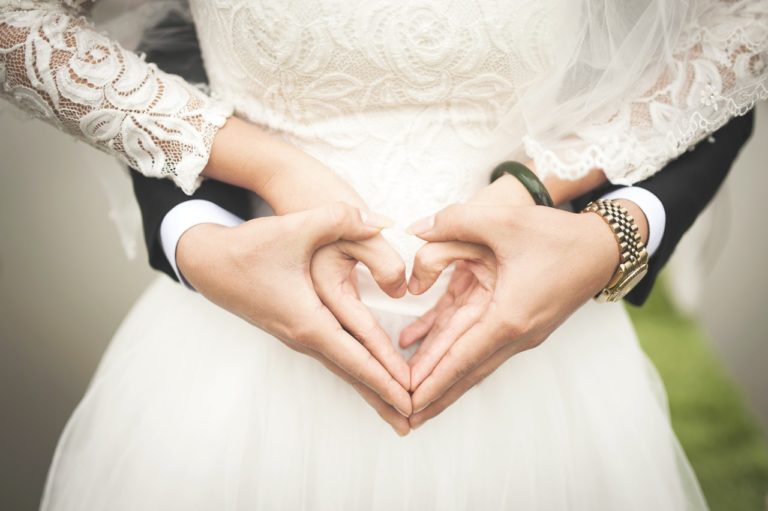What does ‘Getting hitched’ mean?
Introduction
We get asked this a lot. Getting married is a significant milestone in many people’s lives. It marks the beginning of a new chapter, a lifelong commitment, and a celebration of love and partnership. One common phrase used to describe this union is “getting hitched.” The phrase has different connotations and interpretations, depending on the context and the culture in which it is used.
In colloquial terms, “getting hitched” often refers to the act of getting married. It is a lighthearted and informal way of expressing the commitment two individuals make to each other. The phrase can also imply a sense of being tied down or restricted, as if one is being “hitched” to a particular person or situation.
Key Takeaways
- ‘Getting Hitched’ is a common phrase used to refer to getting married.
- The phrase has its origins in the 17th century and was used to describe the act of attaching a horse to a carriage.
- ‘Hitch’ in the context of getting married means to join or attach oneself to another person in a committed relationship.
- Different cultures have varying interpretations of ‘Getting Hitched’, with some emphasizing the importance of family and community involvement.
- In contemporary society, getting hitched is still seen as a significant milestone in one’s life, but there is more emphasis on individual choice and personal fulfillment.
- Getting hitched has legal implications, such as tax benefits and inheritance rights.
- The emotional and psychological impact of getting hitched can vary greatly depending on the individuals involved.
- Financial considerations, such as joint bank accounts and shared expenses, are important when getting hitched.
- Societal expectations surrounding getting hitched can create pressure for couples to conform to traditional gender roles and expectations.
- Alternative ways of expressing the act of getting married include ‘tying the knot’ and ‘taking the plunge’.
The origin and history of the phrase ‘Getting Hitched’
The origin of the phrase “getting hitched” is not entirely clear, but it is believed to have its roots in the world of horse-drawn carriages. In the 18th and 19th centuries, when carriages were commonly used for transportation, horses were often “hitched” or attached to the carriage with a harness. This act of hitching became synonymous with joining or connecting two things together.
Over time, the phrase “getting hitched” began to be used metaphorically to describe the act of getting married. The idea of two individuals being joined together in matrimony was likened to horses being hitched to a carriage. This metaphorical usage gained popularity and eventually became a common expression for marriage.
What does ‘Hitch’ mean in the context of getting married?
In the context of getting married, the term “hitch” refers to joining or connecting two individuals together in matrimony. It signifies the commitment and bond that two people make when they decide to spend their lives together. The act of getting hitched implies a sense of unity, partnership, and shared responsibility.
Timing wise, the combination of verb ‘getting’ and ‘hitched’ is generally the period of accepting a proposal to the point of the day of the wedding and actually getting married.
The term “hitch” can also have other meanings, such as a temporary or casual attachment. In the context of marriage, however, it carries a deeper significance. It represents a lifelong commitment and a promise to support and care for one another through thick and thin.
The different interpretations of ‘Getting Hitched’ across cultures
The act of getting married is celebrated in various ways across different cultures. Each culture has its own unique traditions and rituals that symbolize the union of two individuals. In some cultures, the phrase “getting hitched” may not be commonly used, but the concept of marriage is still deeply ingrained.
Here in the United Kingdom, with the current generation of millennials the support group has shifted away from family to friends in recent years. Part of that group may be built on doing things together. It might feel hard to break it to the group for fear they think they are rejecting the group. So we may introduce the concept of getting married to our group of singleton mates without using the ‘M’ word. More often it is referred to in the third person so as to say, “Did you hear the news?”, “No”, “Jenny is getting hitched”.
In many cultures within India, the phrase “tying the knot” is often used to describe getting married. This phrase refers to the act of tying a sacred thread around the bride and groom’s wrists during the wedding ceremony. It symbolises their union and the bond they share.
In Chinese culture, the phrase “getting married” is often expressed as “entering the bridal chamber.” This phrase refers to the traditional practice of the bride and groom entering a private room together after the wedding ceremony. It symbolises their transition from being single individuals to a married couple.
The significance of getting hitched in contemporary society
In contemporary society, marriage continues to hold significant importance for many people. While attitudes towards marriage have evolved over time, it remains a widely recognised institution that signifies commitment and partnership.
One reason why people choose to get married is for legal and financial benefits. Marriage often grants couples certain legal rights and responsibilities, such as inheritance rights, tax benefits, and access to healthcare. It also provides a sense of stability and security for both individuals.
Another reason why people choose to get married is for emotional and psychological reasons. Marriage represents a deep level of commitment and trust between two individuals. It provides a sense of belonging and support, and can contribute to overall happiness and well-being.
The legal implications of getting hitched

Getting married has several legal implications that couples should be aware of. When two individuals get married, they enter into a legal contract that grants them certain rights and responsibilities.
One of the most significant legal implications of marriage is the sharing of assets and liabilities. In many jurisdictions, when two individuals get married, their assets and debts become joint property. This means that both individuals are responsible for each other’s financial obligations.
Marriage also grants couples certain legal rights, such as the right to make medical decisions for each other, the right to inherit property, and the right to file joint tax returns. These legal rights can provide couples with added security and protection.
The emotional and psychological impact of getting hitched
Getting married can have a profound emotional and psychological impact on individuals. It represents a major life transition and can bring about a range of emotions, from excitement and joy to anxiety and stress.
One of the benefits of getting married is the emotional support and companionship it provides. Marriage often creates a deep bond between two individuals, fostering a sense of intimacy and connection. This emotional support can contribute to overall happiness and well-being.
However, getting married also comes with its challenges. It requires individuals to navigate issues such as communication, compromise, and conflict resolution. It can also bring about feelings of vulnerability and fear of commitment.
The financial considerations of getting hitched
Getting married can have significant financial implications for couples. It often involves combining finances, sharing expenses, and making joint financial decisions.
One of the financial benefits of marriage is the potential for tax savings. In many jurisdictions, married couples are eligible for certain tax breaks and deductions that can result in lower tax liability.
Marriage also provides couples with access to certain financial benefits, such as health insurance coverage, retirement savings plans, and social security benefits. These benefits can provide added financial security and stability.
However, getting married can also have financial drawbacks. For example, combining finances can lead to conflicts over spending habits and financial priorities. It is important for couples to have open and honest discussions about money and to establish a financial plan that works for both individuals.
The societal expectations surrounding getting hitched
Getting married often comes with societal pressures and expectations. Society often places a great deal of importance on marriage as a marker of success and fulfillment.
For example, in many cultures, there is an expectation that individuals should get married by a certain age or at a certain stage in life. This can create pressure for individuals who may not be ready or interested in getting married.
There is also an expectation that marriage should result in certain milestones, such as buying a house, having children, or achieving financial stability. These societal expectations can create stress and anxiety for couples who may not be able to meet them.
It is important for couples to navigate these societal expectations and to define their own path. Every relationship is unique, and what works for one couple may not work for another. It is important to prioritize open communication, mutual respect, and shared values when making decisions about marriage.
Alternative ways of expressing the act of getting married
While the phrase “getting hitched” is commonly used to describe getting married, there are alternative expressions that couples may choose to use.
For example, some couples may prefer to use the phrase “tying the knot” or “taking the plunge” to describe their union. These phrases evoke a sense of commitment and adventure.
Other couples may choose to use more personal or creative expressions to describe their marriage. They may come up with their own unique phrases or rituals that hold special meaning for them.
Getting hitched is a significant milestone in many people’s lives. It represents a commitment to love, partnership, and shared responsibility. The phrase “getting hitched” has different connotations and interpretations, depending on the context and culture in which it is used. It is important for couples to navigate the legal, emotional, and financial implications of getting married, while also considering their own unique values and priorities. Ultimately, getting hitched is a joyful celebration of love and partnership, and a chance to embark on a new chapter together.
If you’re wondering what “Getting hitched” means and are in the midst of planning your wedding, you might want to consider hiring a wedding planner. Check out this informative article on GettingHitched.co.uk that highlights five compelling reasons for hiring a wedding planner. From reducing stress to saving time and money, a wedding planner can be an invaluable asset in ensuring your big day goes off without a hitch. Learn more here.
FAQs
What does the phrase ‘Getting hitched’ mean?
The phrase ‘Getting hitched’ is a slang term that means getting married or entering into a marriage union.
Where did the phrase ‘Getting hitched’ originate from?
The origin of the phrase ‘Getting hitched’ is unclear, but it is believed to have originated in the United States in the early 1900s.
Is ‘Getting hitched’ a formal or informal term?
‘Getting hitched’ is an informal term and is commonly used in casual conversations and informal settings.
What are some synonyms for ‘Getting hitched’?
Some synonyms for ‘Getting hitched’ include tying the knot, getting married, getting wed, and saying “I do”.
What are some cultural traditions associated with ‘Getting hitched’?
Cultural traditions associated with ‘Getting hitched’ vary depending on the culture and religion of the couple. Some common traditions include exchanging rings, wearing special attire, and having a wedding ceremony.
What are some legal requirements for ‘Getting hitched’?
Legal requirements for ‘Getting hitched’ vary depending on the country and state. Generally, couples must obtain a marriage license, be of legal age, and not be closely related.







